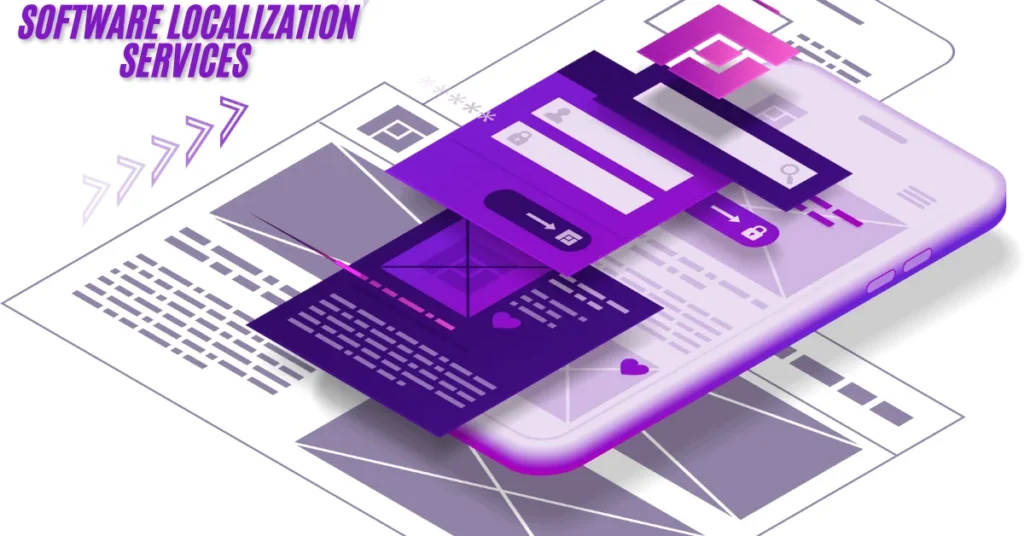Introduction to software localization
In today’s global marketplace, software knows no borders. Businesses are reaching out to diverse audiences, each with their own language and cultural nuances. However, there’s a crucial element that can make or break this connection: software localization services. This process goes beyond mere translation; it adapts your product to fit the unique needs of multilingual users around the world.
Imagine launching an app in English only to find potential users in Spain or Japan struggling to navigate it effectively because it doesn’t speak their language—literally and figuratively. Such disconnects can lead not just to frustration but also lost opportunities. In a world where consumers expect seamless experiences tailored for them, ensuring your software resonates across languages is essential for success.
Let’s delve into why investing in software localization services is key for businesses aiming for a truly global reach while meeting the demands of today’s multicultural user base.
Importance of catering to multilingual users
In today’s globalized world, catering to multilingual users is essential for any software company. With more than 7,000 languages spoken worldwide, businesses must recognize the diverse needs of their audiences.
A user-friendly experience can significantly impact customer retention and satisfaction. When users interact with software in their native language, they feel valued. This fosters loyalty and encourages word-of-mouth referrals.
Moreover, localizing content goes beyond mere translation. It involves adapting nuances and cultural references that resonate with specific markets. Failing to do so can alienate potential customers who may otherwise embrace the product.
Additionally, as international competition grows fiercer, companies that prioritize multilingual accessibility stand out. They demonstrate an understanding of cultural sensitivity and inclusivity—key factors in building trust among diverse communities. Investing in localization not only broadens market reach but also enhances brand reputation on a global scale.
Benefits of software localization services
Software localization services offer a range of advantages for businesses targeting global markets. First, they enhance user experience by providing an interface and content in the user’s native language. This leads to higher user satisfaction and engagement.
Localization also opens doors to new markets. By adapting your software to different languages and cultures, you can attract diverse audiences who may otherwise feel alienated by English-only options.
Furthermore, localized content can improve search engine rankings in specific regions. This means your product becomes more discoverable online, driving organic traffic from multilingual users.
It fosters trust and credibility with local customers. Users are more likely to choose products that speak their language—literally and figuratively—over those that don’t reflect their cultural nuances or preferences.
Examples of successful companies using localization
Many successful companies have harnessed the power of software localization to expand their global reach. Take Airbnb, for instance. By localizing its platform and customer support in multiple languages, it has made travelers feel at home no matter where they are.
Spotify is another standout example. The music streaming giant tailors playlists and user interfaces based on regional tastes. This attention to cultural nuances not only attracts users but also keeps them engaged.
Another notable case is Netflix, which invests heavily in subtitling and dubbing content for various markets. This strategy enhances viewer experience and boosts subscriber numbers worldwide.
These examples illustrate how effective localization can drive user satisfaction and increase market penetration across diverse regions. Each company demonstrates that understanding local needs fosters a deeper connection with customers around the globe.
What to consider when choosing a localization service provider
Choosing the right localization service provider is crucial for your project’s success. Start by evaluating their expertise in your specific industry. Different sectors have unique terminology and cultural nuances, so familiarity matters.
Next, ask about their technology stack. A reliable provider should use advanced tools to streamline the localization process and ensure quality control.
Consider their team composition as well. Skilled linguists are essential, but don’t overlook professionals with knowledge of user experience design or software development.
Communication is key throughout any partnership. Assess how responsive they are during initial discussions—this can indicate future collaboration dynamics.
Review client testimonials and case studies. Real-world examples can provide insight into a provider’s capabilities and reliability when handling projects similar to yours.
Common challenges and how to overcome them
Software localization services come with their own set of challenges. One major hurdle is maintaining consistency across different languages. Variations in terminology can confuse users and dilute brand identity.
Another challenge lies in cultural nuances. What works well in one region may not resonate at all in another. It’s essential to adapt content to fit local customs and preferences while ensuring the core message remains intact.
Time zone differences can complicate communication between teams, leading to delays and misunderstandings. Establishing clear protocols for collaboration can help streamline processes.
Additionally, technical issues often arise during localization. Software bugs or incompatibility with certain languages may hinder user experience. Regular testing throughout the process is vital to identify and fix these problems early on.
By addressing these challenges proactively, businesses can create a seamless multilingual experience that engages users effectively across diverse markets.
Conclusion: The future of software localization and its impact on global businesses
The future of software localization is bright and full of potential. As businesses expand their reach globally, the demand for effective localization will only increase. Companies that invest in high-quality software localization services position themselves as leaders in their respective markets.
With advancements in technology, such as machine learning and artificial intelligence, the process of localizing software is becoming more efficient. This allows organizations to scale their global operations without sacrificing quality or user experience.
Moreover, understanding cultural nuances enhances customer loyalty. When users feel understood and valued through tailored content, they are more likely to engage with your brand consistently.
As the world becomes increasingly interconnected, embracing diversity through localized solutions isn’t just a strategy—it’s essential for survival in competitive markets. The impact on global businesses can be transformative; those who prioritize localization not only improve accessibility but also foster better relationships with multilingual audiences.
Investing wisely in Software Localization Services today could pave the way for sustainable growth tomorrow. Adapting to this evolving landscape will define which companies thrive on a global stage moving forward.
FAQs
Q: What are software localization services?
Ans: Software localization services adapt software applications for different languages and cultural contexts, ensuring usability and relevance for global audiences.
Q: Why are software localization services important for multilingual users?
Ans: They allow users to interact with software in their native language, improving comprehension, user satisfaction, and overall experience.
Q: How do localization services differ from translation?
Ans: While translation focuses on language, localization also adjusts cultural nuances, symbols, formats, and interface elements to suit the target audience.
Q: Can localization improve software adoption rates?
Ans: Yes, users are more likely to adopt and use software that feels familiar and accessible, making localization key for reaching global markets.
Q: What types of software benefit from localization services?
Ans: Virtually any software—from mobile apps and websites to enterprise platforms—benefits from localization to connect with diverse, multilingual users.







